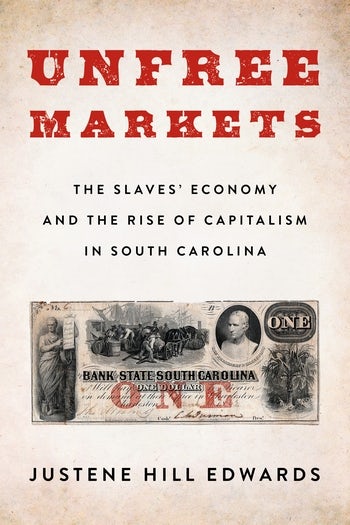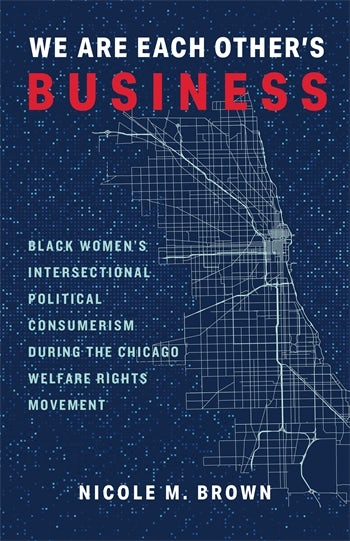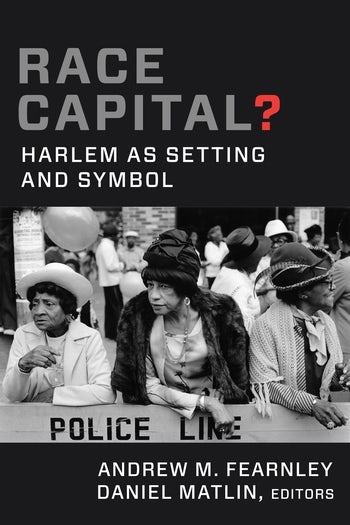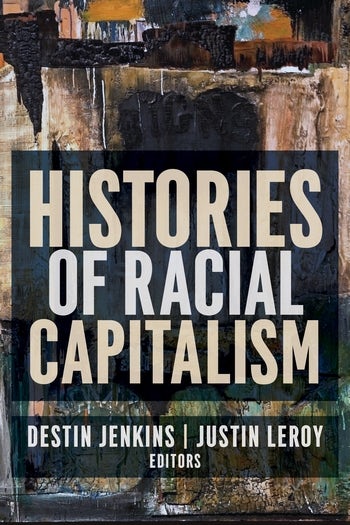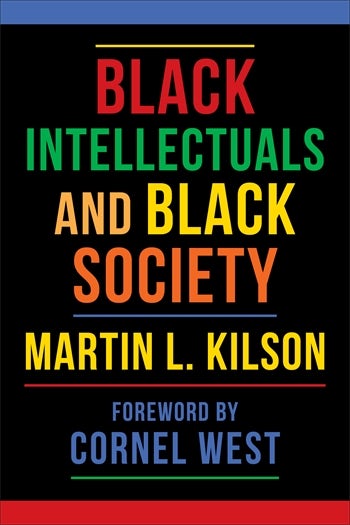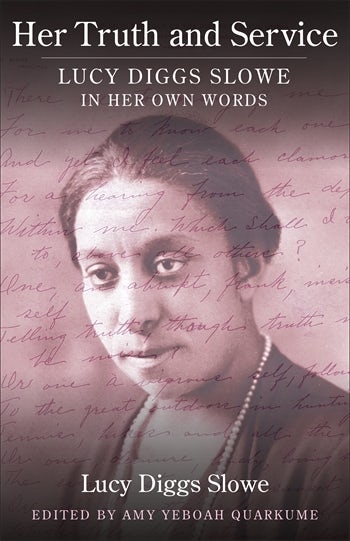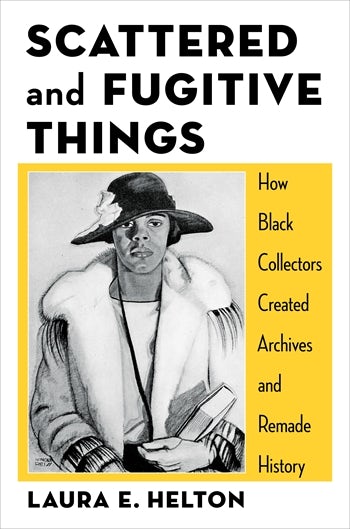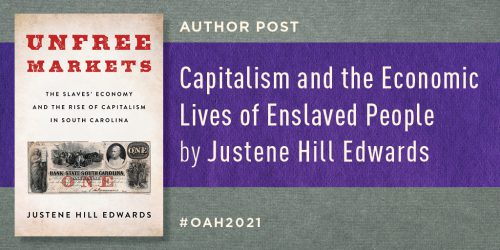10 Must-Read Books for Black History Month 2025
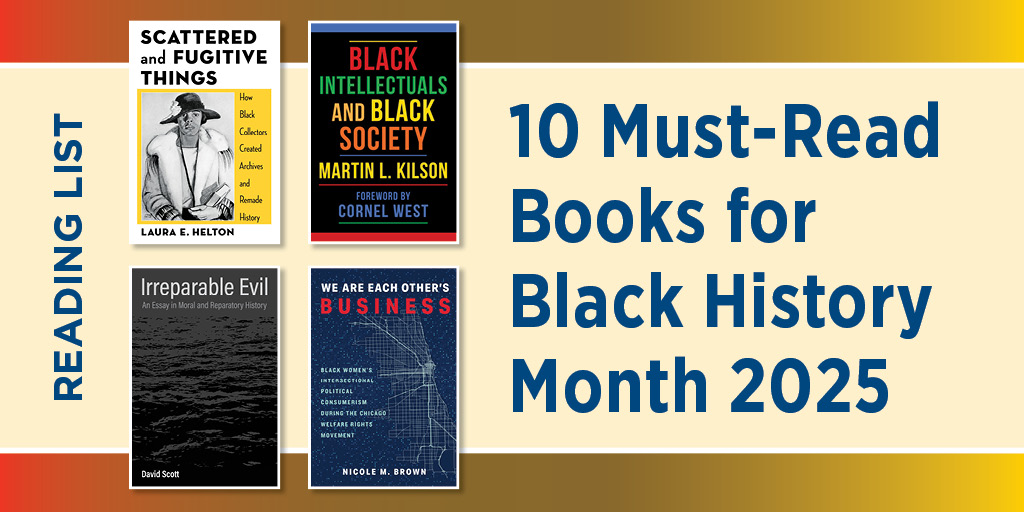
Understanding the impact of Black labor is key to understanding Black history and culture, as well as its influence on the United States. This year’s Black History Month theme—African Americans and Labor, free, unfree, vocational, and voluntary—explores how work has shaped Black societies. From capitalism and welfare to education and activism, the books listed below examine the impact of labor on Black society and how reparations can correct the exploitative labor of the past.
Capitalism, Welfare, and Reparations
Unfree Markets
The Slaves’ Economy and the Rise of Capitalism in South Carolina
Justene Hill Edwards
The everyday lives of enslaved people were filled with backbreaking tasks that their enslavers forced them to complete. But in spare moments, enslaved people led vibrant economic lives, cultivating produce and raising livestock to trade and sell. In Unfree Markets, Justene Hill Edwards illuminates the inner workings of the slaves’ economy and the strategies that enslaved people used to participate in the market. Drawing on wide-ranging archival research to expand our understanding of racial capitalism, this book shows the limits of the connection between economic activity and freedom. Also read about African Americans’ continual fight for equality in present-day America.
Banking on Freedom
Black Women in U.S. Finance Before the New Deal
Shennette Garrett-Scott
Between 1888 and 1930, African Americans opened more than a hundred banks and thousands of other financial institutions. In this book, Shennette Garrett-Scott offers an unparalleled account of how black women carved out economic, social, and political power in contexts shaped by sexism, white supremacy, and capitalist exploitation. The first book to center black women’s engagement with the elite sectors of banking, finance, and insurance, Banking on Freedom reveals the ways gender, race, and class shaped the meanings of wealth and risk in U.S. capitalism and society. You can also learn more about five African American women pioneers in U.S. finance and U.S. property restrictions and finance after the Civil War.
We Are Each Other’s Business
Black Women’s Intersectional Political Consumerism During the Chicago Welfare Rights Movement
Nicole M. Brown
In the 1960s and 1970s, the Welfare Rights Movement organized at both local and national levels, advocating for poor people’s inclusion, dignity, and autonomy. We Are Each Other’s Business examines Black women’s leadership within the Chicago Welfare Rights Movement, recasting their consumer activism as a form of Black feminist technology. Bringing together historical sociology, computational methods, and intersectional Black feminist theory, this book offers innovative and generative insights into Black women’s struggle for political and economic equity.
Race Capital?
Harlem as Setting and Symbol
Edited by Andrew M. Fearnley and Daniel Matlin
For close to a century, Harlem has been the iconic Black neighborhood widely seen as the heart of African American life and culture, both celebrated as the vanguard of Black self-determination and lamented as the face of segregation. In Race Capital?, leading scholars consider crucial aspects of Harlem’s social, political, and intellectual history; its artistic, cultural, and economic life; and its representation across an array of media and genres. Spanning a century, from the emergence of the Harlem Renaissance to present-day controversies over gentrification, this book models new Harlem scholarship that interrogates exceptionalism while taking seriously the importance of place and locality, offering vistas in new directions for African American and diasporic studies. Read more about Harlem as a setting and maker of Black life.
Histories of Racial Capitalism
Edited by Destin Jenkins and Justin Leroy
Racial capitalism is not simply a permutation, phase, or stage in the larger history of capitalism. Since the beginning of the Atlantic slave trade and the colonization of the Americas, capitalism, in both material and ideological senses, has been racial, deriving social and economic value from racial classification and stratification. In Histories of Racial Capitalism, scholars offer dynamic accounts of the relationship between social relations of exploitation and the racial terms through which they were organized, justified, and contested. By theorizing and testing the concept of racial capitalism in different historical circumstances, this book shows its analytical and political power for today’s scholars and activists. Read more about race and the history of capitalism.
Irreparable Evil
An Essay in Moral and Reparatory History
David Scott
Irreparable Evil explores the legacy of slavery and its moral and political implications, offering a nuanced intervention into debates over reparations. David Scott reconsiders the story of New World slavery in a series of interconnected essays that focus on Jamaica and the Anglophone Caribbean. He reflects on the paradoxes of seeking redress for the specific moral evil of slavery, criticizing the limitations of liberal rights–based arguments for reparations that pursue reconciliation with the past. Instead, he argues, in making the urgent demand for reparations, we must acknowledge the fundamental irreparability of a wrong of such magnitude.
Black Intelligentsia and Activism
Black Intellectuals and Black Society
Martin L. Kilson, Foreword by Cornel West
This book presents the trailblazing political scientist Martin L. Kilson’s essays on leading Black intellectuals of the twentieth century. He argues that the trajectory of twentieth-century Black intellectuals was determined by the interplay between formal ideas and Black egalitarian struggle. Offering timely and engaging insights into the lives and work of pivotal Black intellectuals and activists, Black Intellectuals and Black Society sheds new light on the abiding questions and debates in Black political thought.
Her Truth and Service
Lucy Diggs Slowe in Her Own Words
Lucy Diggs Slowe. Edited by Amy Yeboah Quarkume
Lucy Diggs Slowe (1885–1937) was one of the most remarkable and accomplished figures in the history of Black women’s higher education. In 1922, Slowe was appointed the first Dean of Women at Howard University, making her the first Black woman to serve as dean at any American university. Beyond her trailblazing career in higher education, she was a committed teacher, an ardent antiracist advocate, and even a national tennis champion. Her Truth and Service showcases Slowe’s speeches, articles, and letters, illuminating her multifaceted accomplishments and unwavering dedication to the quest for equality and justice. It is an inspiring testament to the lifelong struggle for social justice. Read more about Slowe, the role of the university, and democracy.
Scattered and Fugitive Things
How Black Collectors Created Archives and Remade History
Laura E. Helton
During the first half of the twentieth century, a group of collectors and creators dedicated themselves to documenting the history of African American life. Scattered and Fugitive Things tells the stories of these Black collectors, traveling from the parlors of the urban north to HBCU reading rooms and branch libraries in the Jim Crow south. Laura E. Helton chronicles the work of six key figures: bibliophile Arturo Schomburg, scrapbook maker Alexander Gumby, librarians Virginia Lee and Vivian Harsh, curator Dorothy Porter, and historian L. D. Reddick. Offering new ways to understand Black intellectual and literary history, Scattered and Fugitive Things reveals Black collecting as a radical critical tradition that reimagines past, present, and future. Read a Q&A with the author.
The Sisterhood
How a Network of Black Women Writers Changed American Culture
Courtney Thorsson
One Sunday afternoon in February 1977, Toni Morrison, Alice Walker, Ntozake Shange, and several other Black women writers met at June Jordan’s Brooklyn apartment to eat gumbo, drink champagne, and talk about their work. Calling themselves “The Sisterhood,” the group would get together once a month over the next two years, creating a vital space for Black women to discuss literature and liberation. The Sisterhood tells the story of how this remarkable community transformed American writing and cultural institutions. Highlighting the organizing, networking, and community building that nurtured Black women’s writing, this book demonstrates that the Sisterhood offers an enduring model for Black feminist collaboration. Learn about some of the lesser-known members of the group.
Categories:Academia/EducationAfrican American / Black StudiesAmerican HistoryBlack History MonthBlack StudiesBusinessEconomicsHistoryLiterary StudiesPhilosophyReading List
Tags:Amy Yeboah QuarkumeAndrew M. FearnleyBanking on FreedomBlack History Month 2025Black Intellectuals and Black SocietyCornel WestCourtney ThorssonDaniel MatlinDavid ScottDestin JenkinsHer Truth and ServiceHistories of Racial CapitalismIrreparable EvilJustene Hill EdwardsJustin LeroyLaura E. HeltonLucy Diggs SloweMartin L. KilsonNicole M. BrownRace Capital?Scattered and Fugitive ThingsShennette Garrett-ScottThe SisterhoodUnfree MarketsWe Are Each Other’s Business

